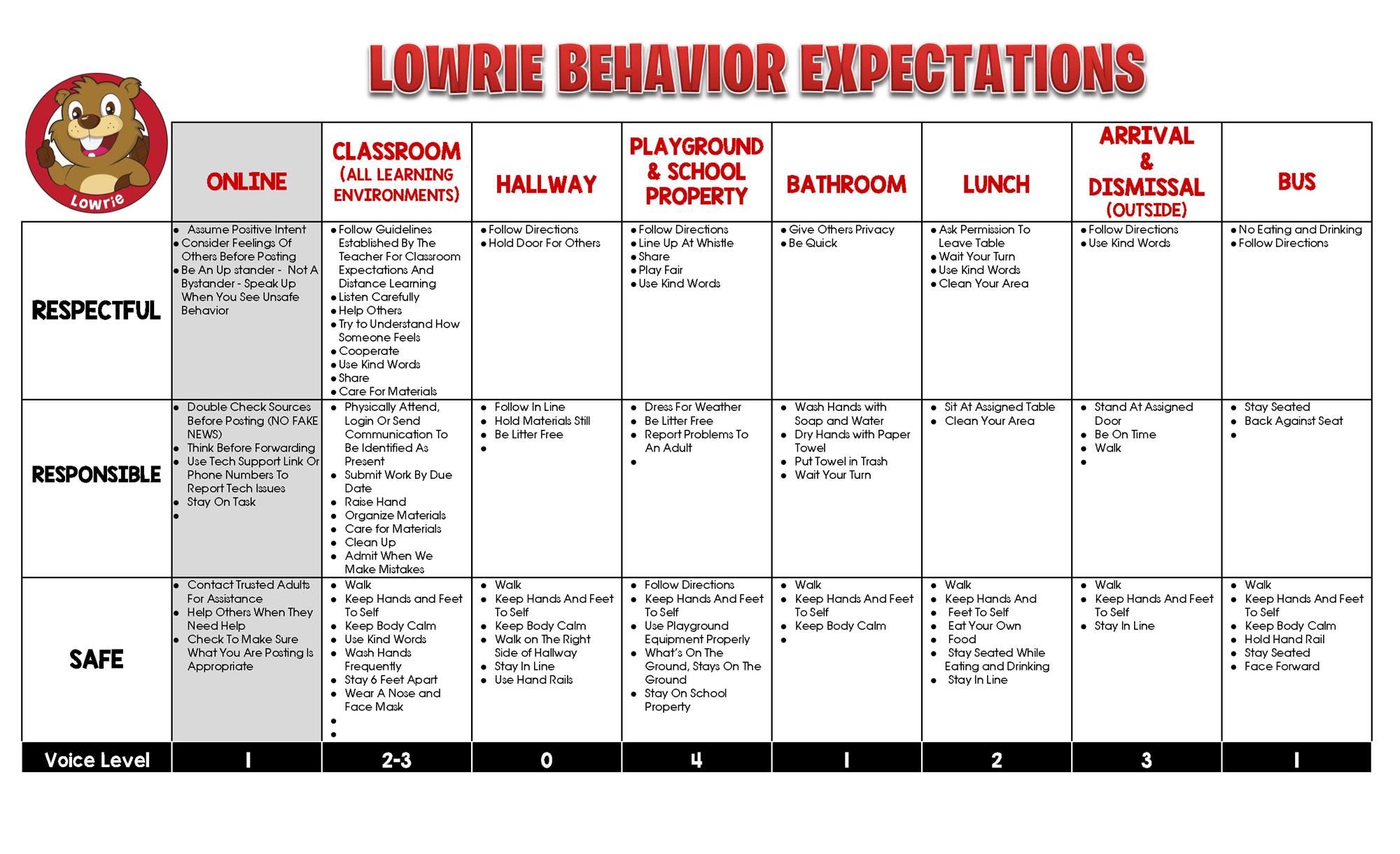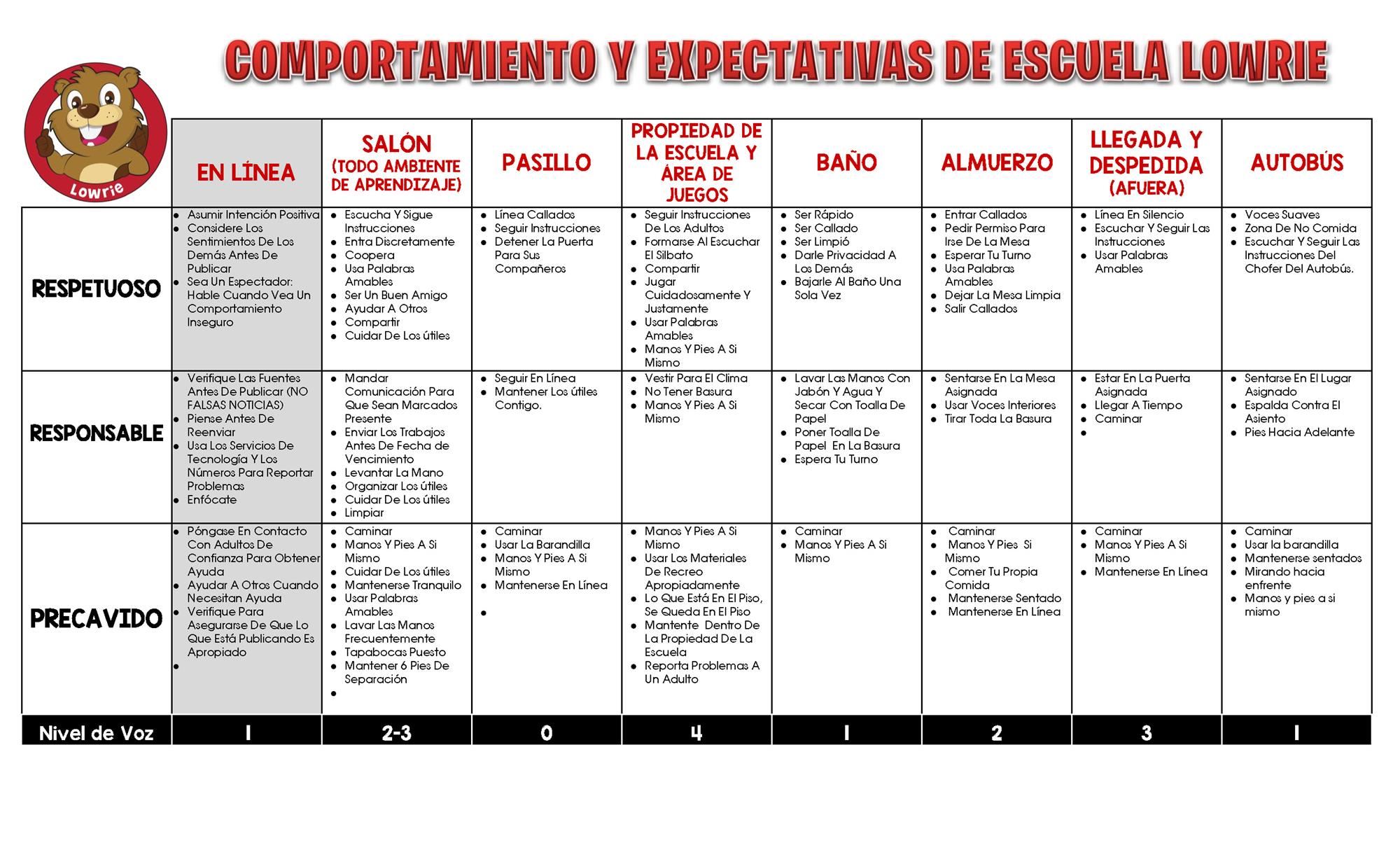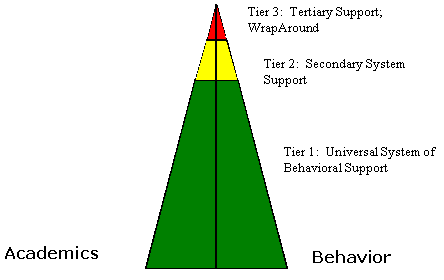- Lowrie Elementary
- Behavior Expectations
Behavior Expectations
-


Positive Behavior Interventions and Supports (PBIS) is a proactive systems approach for creating and maintaining safe and effective learning environments in schools, and ensuring that all students have the social/emotional skills needed to ensure their success at school and beyond.
As in the “behavioral side” of the Response to Intervention model, PBIS applies a three-tiered system of support and a problem-solving process to enhance the capacity of schools to effectively educate all students.

Tier 1: Universal focuses on the importance of school-wide behavioral expectations and positive reinforcement of appropriate behavior. Students learn 3 to 5 school-wide behavioral expectations. Students are acknowledged individually or as a group for meeting behavioral expectations.
Tier 2: Secundary provides select groups of students with additional support appropriate to the student’s level of need and then monitors the progress of students receiving those interventions. Typically, these are specific, research-based group interventions. Students may participate in brief plans to improve behaviors. Parents are notified and encouraged to support the interventions.
Tier 3: Tertiary provides intensive supports to individual students who continue to struggle after receiving Tier 1 and Tier 2 support. At this level, families and the community provide a great deal of support that a student may need.How does it work?
- PBIS is prevention-based: Through instruction, comprehension, and regular practice, all stakeholders use a consistent set of behavior expectations.
- PBIS is data-based: School teams within the building review data on individual and groups of students to determine which students are not responding to the teaching of the behavioral expectations. PBIS schools view it as an opportunity for re-teaching.
- PBIS is community-based: PBIS offers supports for families, youth and schools.
- PBIS is research-based: The PBIS model is a research based strategy that is supported by the Illinois State Board of Education promoting effective practices to benefit all children. It was started as a joint initiative by the University of Oregon and the federal Department of Education to prevent the isolation of high school students. Currently, PBIS is implemented across the United States and in many foreign countries.
Does it make a difference?
The 3-tiered approach reduces problem behavior as a barrier to student achievement. There are many PBIS success stories involving individual students as well as entire schools. Visit the district website to view our U-46 success stories.
How Does PBIS help disruptive students?
PBIS school teams gather and review documented discipline data. If problem behavior occurs, students in PBIS schools are provided with a full continuum of supports to address the behavior. PBIS schools view it as an opportunity for re-teaching school-wide expectations. As a student’s needs increase, the intensity of the support increases.
How can parents support PBIS?Parents are an important part of PBIS implementation. Schools encourage parents to use the same expectations that the school has identified. Parents can familiarize themselves with the school-wide behavior expectations. This common language creates consistency for expected student behavior. Parents are asked to discuss the school’s expectations and post them at home for easy reference. Schools encourage parents to participate in PBIS school activities and support school teams. Parents may help with fundraising efforts, participate in leadership activities, and assist with outreach to the community.
More information:
Click here to visit the U-46 Multi-Tiered Systems of Support website.

